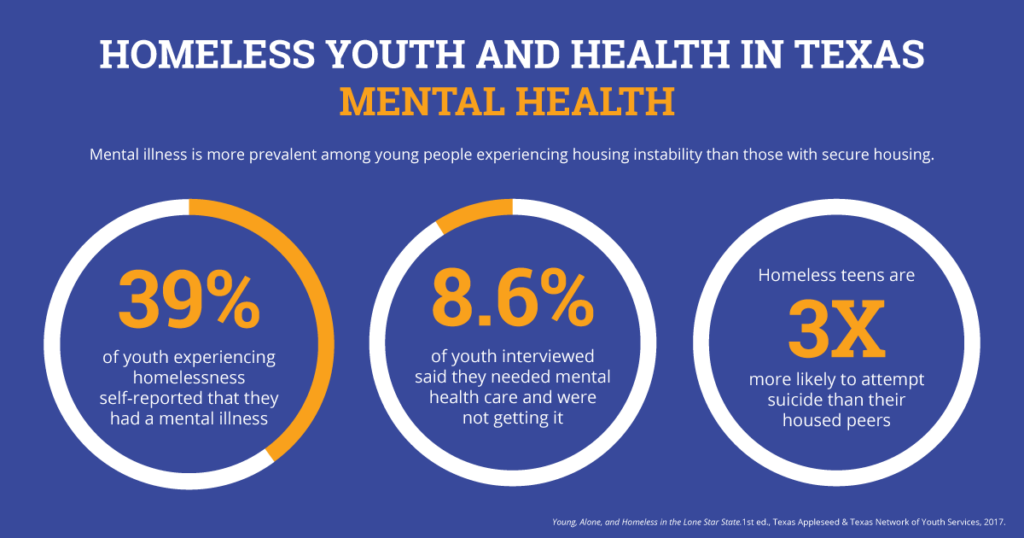
Mental Health Among Students Experiencing Homelessness
Mental Health Awareness has been observed in the United States during the month of May since 1949. Mental health is just as important as physical health in achieving whole-body wellness, and 1 in 5 people will experience some form of mental illness in their lifetime. While everyone has experiences that can impact their mental health, the challenges faced by homeless youth further compound the impacts on their mental wellbeing.

Some facts about homelessness and mental health:
- Approximately 30% of those experiencing homelessness are younger than age 24. (1)
- 69% of youth experiencing homelessness indicated having mental health difficulties. (2)
- Struggles with mental health and substance abuse are significantly higher among students experiencing homelessness. (3)
- Students experiencing homelessness are at dire risk of rape, assault, suicide, substance abuse, hunger, bullying and other risks. (3)
- Anxiety, depression, and suicide rates have been steadily growing among school-age children. Now due to the pandemic response and school closures, add to that social isolation, anxiety over parents losing jobs, fears of loved ones falling ill, no respite from family conflicts, and grief over death or missing important milestones like graduation. The culmination of these will have a corrosive effect on students’ mental health. (4)
- An estimated 1 in 5 (15 million) children live in poverty, and a disproportionate number of these youth are African-American, Latino, or Native American. (5)
- Close to 17 million children have mental health issues, many of which are never addressed. (5)
According to the Substance Abuse and Mental Health Services Administration (part of the U.S. Department of Health and Human Services), the trauma of even short term homelessness can have a major effect on a youth’s future development. In addition to academic difficulties, youth who experience homelessness have much higher rates of emotional, behavioral, and immediate and long-term health problems. In particular, they often struggle with self-esteem, putting them at risk for substance abuse, suicide, violence, and other negative outcomes. Support beyond just housing is necessary to ensure a sustainable exit from homelessness and a path toward a successful future.
This is why we focus our efforts to provide academic, emotional, and social support services that help unsheltered youth overcome homelessness and ultimately live healthy, productive lives.
- Department of Housing and Urban Development’s 2018 annual report on Continuum of Care Homeless Assistance Programs Homeless Populations and Subpopulations
- Missed Opportunities: Youth Count in America National Report
- Youth Risk Behavior Survey
- Schools Struggle to Meet Students Mental Health Needs, EdWeek
- We Are Failing our Most Vulnerable Children, EdWeek